Post Contents:
Winter squash makes me think of Thanksgiving, but it’s good all year round!
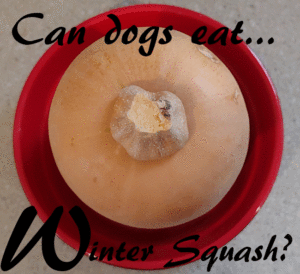 I love butternut squash. Oh, and pumpkin pie! Any type of plant based dish that I can add lots (and lots) of sugar to sounds good to me! Did you know that botanically, squashes are fruits? A lot of people think of them as vegetables, but, like other fruits, they contain seeds and develop from the flower of a plant.
I love butternut squash. Oh, and pumpkin pie! Any type of plant based dish that I can add lots (and lots) of sugar to sounds good to me! Did you know that botanically, squashes are fruits? A lot of people think of them as vegetables, but, like other fruits, they contain seeds and develop from the flower of a plant.
What Are Winter Squash?
Winter squashes include any squash species that are harvested and eaten in their mature stage. At this stage, they contain seeds and a tough outer rind. Because of this rind, it is relatively easy to store winter squash over the…well, winter! Unlike many summer squashes, the skin/rind of winter squash is not normally eaten. Winter squash includes multiple squash species within the genus Cucurbita. Pumpkins are probably the best known winter squash! But the category also includes butternut squash, acorn squash, banana squash, buttercup squash, sweet potato squash, Hubbard squash, Kabocha squash, spaghetti squash, sweet dumpling squash, turban squash, and other, lesser known, squashes.

Can Dogs Eat Winter Squash?
I’m going to be honest here. There are some types of winter squashes that I didn’t even know that people could eat! Some of the funkier looking ones that I’ve seen sold in the grocery store in the autumn, I always thought were decorative! Good news for our furry friends, though. Try as I might, I couldn’t find a single type of squash that came up as being dangerous for dogs. As it turns out, all varieties of squash are safe for dogs to eat!
Are There Any Benefits To Feeding Winter Squash To Dogs?
 You mean besides the fact that my dogs apparently think that squashes are really fun new toys? Squashes are packed full of healthy nutrients for our pups! What, exactly, the benefits are can vary based on the type of winter squash you’re feeding. However, in general, winter squashes are rich in vitamins such as A, B and C, Beta Carotene, potassium, magnesium, calcium, copper, and manganese. Winter squash contains immune system boosting antioxidants, and lots of fiber. Being high in fiber, in particular, makes more common winter squashes, such as pumpkin, a go-to home remedy for dogs who are experiencing mild GI issues.
You mean besides the fact that my dogs apparently think that squashes are really fun new toys? Squashes are packed full of healthy nutrients for our pups! What, exactly, the benefits are can vary based on the type of winter squash you’re feeding. However, in general, winter squashes are rich in vitamins such as A, B and C, Beta Carotene, potassium, magnesium, calcium, copper, and manganese. Winter squash contains immune system boosting antioxidants, and lots of fiber. Being high in fiber, in particular, makes more common winter squashes, such as pumpkin, a go-to home remedy for dogs who are experiencing mild GI issues.
Feeding winter squash to our furry friends is touted to help improve not only digestion, but also skin hydration, coat health, and stronger nerves, kidneys, and muscles. Nutrients in squashes can also help our dogs’ hearts, eyes, and immune systems. Plain squash is also a filling, yet low fat food, making it a great addition to the diet of an overweight dog. Feeding squash can help Fido feel fuller without adding a lot of additional calories to their diet.
How To Prepare Winter Squash For Dogs…
 Remember the rinds and seeds I wrote about earlier? Those should be left out when feeding winter squash to dogs. More so the rinds than the seeds. While there is nothing toxic in winter squash skin or seeds, their hard texture makes them difficult for dogs to digest. If consumed in large quantities, there is a risk they can lead to a blockage or other GI issues.
Remember the rinds and seeds I wrote about earlier? Those should be left out when feeding winter squash to dogs. More so the rinds than the seeds. While there is nothing toxic in winter squash skin or seeds, their hard texture makes them difficult for dogs to digest. If consumed in large quantities, there is a risk they can lead to a blockage or other GI issues.
Because it will be easier for your dog to digest, winter squashes are best served cooked and/or pureed. Raw squash isn’t toxic in any way, but it’s difficult for dogs to digest and may present a choking hazard if it isn’t cut into very small pieces, or pureed.
I personally love my butternut squash with lots of butter and brown sugar (yum!). However, these types of additives are not healthy for our furry friends (hey, they probably aren’t healthy for us either, but oh well). To much sugar can lead to…we’ll say, messy, GI issues. And feeding too much fatty foods can lead to a painful issue called pancreatitis. Or just a regular old upset stomach, which may be less dramatic but still isn’t any fun for our best friends to experience. So hold the toppings, when it comes to winter squash and our pets, plain is best!
Do Dogs Like Winter Squash?
My 13 year old papillon, Kitsune, loves all the types of winter squash I’ve tried offering him! He’ll eat pureed pumpkin plain right out of a bowl, which is helpful for times when I want to offer it to him to help with GI upset. My Alaskan Klee Kai, Fenrir, is a pickier eater and, so far, won’t eat any type of winter squash plain. But I can usually convince him to eat some if I mix it in with his regular food, or use it as an ingredient in homemade treats.
Remember, like with any food that is not a regular part of your dog’s balanced diet, to only feed treat or supplemental foods in moderation! Looking for more ideas for healthy “human” foods you can share with your dog? Check out my other blogging from A to Z challenge posts!
Comment below! Has your dog ever tried any type of winter squash? What did they try and did they like it?
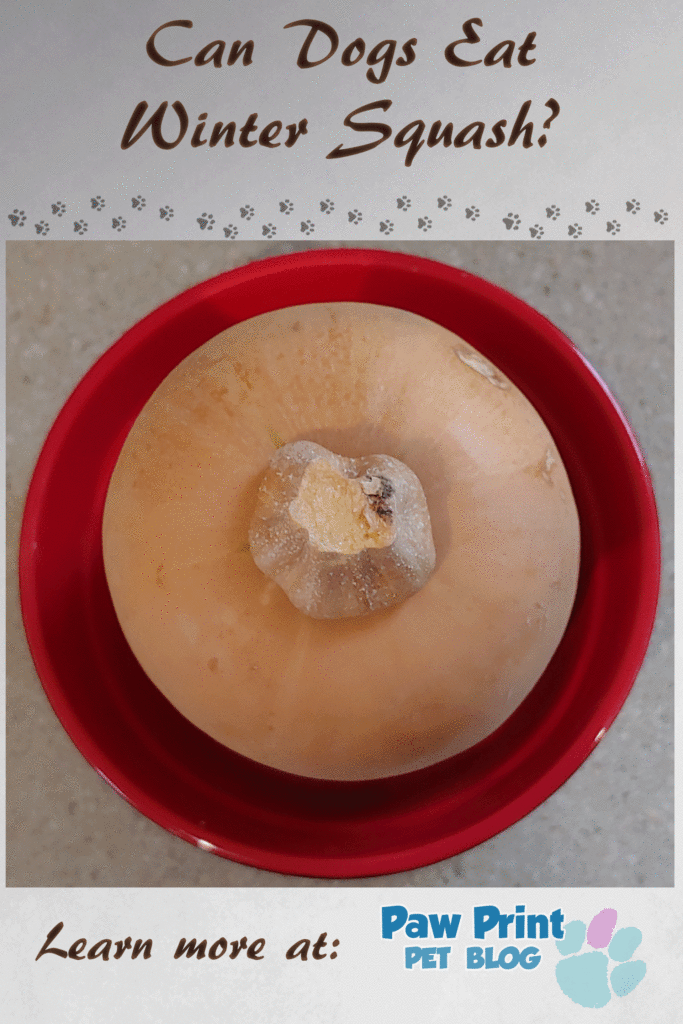


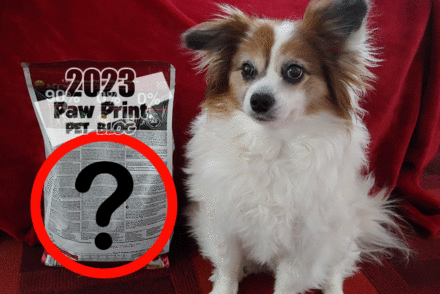
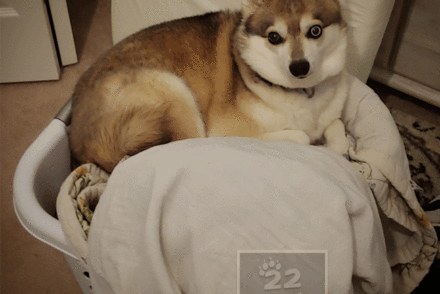
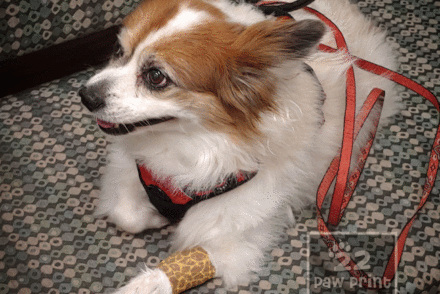

1 Comment
[…] such as carrots, green beans, and squash are also safe for dogs. However, they should also be offered plain, without things such as […]